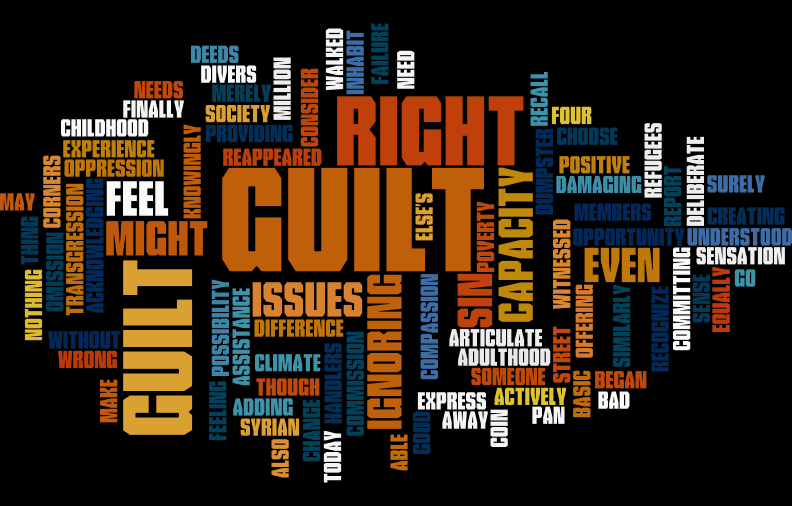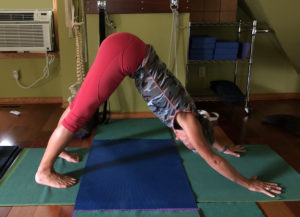Even in childhood I recall I understood the basic difference between right and wrong. I might not have been able to articulate my experience, but I could feel the sensation of guilt if I did not do what was right or if I witnessed someone else’s transgression and didn’t speak out about it.
Similarly in adulthood, as dumpster divers and pan handlers began to inhabit our street corners, that same sense of guilt reappeared if I walked by without acknowledging them or offering a coin. Today I again feel guilt when I consider the needs of four million Syrian refugees and the possibility that those of us who can do right by them may choose not to. By doing nothing or not providing for those who need our assistance, we are committing a sin of omission — the deliberate failure to do the right thing when we have the capacity to do so.
Surely, as members of society we finally recognize that merely ignoring such issues as poverty, oppression and climate change does not make them go away. Even though we might not actively be creating or adding to these issues (a sin of commission), knowingly not doing good deeds when we have the capacity is equally damaging. We are not only ignoring our guilt but also the positive opportunity to express compassion.
Last week, I encountered a document that registered high on my compassion barometer —the Leap Manifesto. As a consensus statement crafted by labour unions, environmentalists, indigenous and other social activists, it calls on Canada to care for the earth and for one another.
Because, as Louise Hay affirms, “we are all family and the planet is our home,” I encourage you to read the Leap’s 15 demands:
- Respect the inherent rights and title of the original caretakers of this land and fully implement the UN’s Declaration on the Rights of Indigenous Peoples.
- Research shows 100% of our electricity can derive from renewable resources by 2050 and we could have a 100% clean economy. Begin this shift now.
- No new infrastructure projects that lock us into increased extraction decades into the future. Make the “iron law of energy development” — if you wouldn’t want it in your backyard, then it doesn’t belong in anyone’s backyard.
- Institute energy democracy. Wherever possible, communities collectively control new clean energy systems. Indigenous Peoples and others on the frontlines of polluting industrial activity are first to receive public support for their own clean energy projects.
- Create a universal program to build and retrofit energy efficient housing, ensuring that the lowest income communities will benefit first.
- Develop high-speed rail powered by renewable resources and affordable public transit to unite every community in this country — in place of more cars, pipelines and exploding trains.
- Ensure training and resources for workers in carbon-intensive jobs so they are fully able to participate in the clean energy economy.
- Invest in our decaying public infrastructure so that it can withstand increasingly frequent extreme weather events.
- Develop a more localized and ecologically-based agricultural system to reduce reliance on fossil fuels, absorb shocks in global supply and produce healthier and more affordable food for everyone.
- End all trade deals that interfere with our attempts to rebuild local economies, regulate corporations and stop damaging extractive projects.
- Immigration status and full protection for all workers. Canadians can begin to rebalance the scales of climate justice by welcoming refugees and migrants seeking safety and a better life.
- Expand low-carbon sectors: care-giving, teaching, social work, the arts and public-interest media. A national childcare program is long past due.
- A vigorous debate about a universal annual income given so much care-taking (people or planet) is currently unpaid and often performed by women.
- Declare “austerity” as fossilized thinking that threatens life on earth. Release the funds needed by: ending fossil fuel subsidies and financial transaction taxes, higher income taxes on corporations and wealthy people; progressive carbon tax and cuts to military spending.
- Design a political system in which every vote counts and corporate money is removed from political campaigns.
Any one demand realized would ‘up’ our personal and national compassion score. Just as appealing to me is the opportunity to replace guilt with feelings of goodness and self-worth that arise when we commit acts of loving kindness.
What one action can you take to surface compassion toward others and our beauty planet? How about signing the Leap Manifesto?
For more on compassion, click here.





